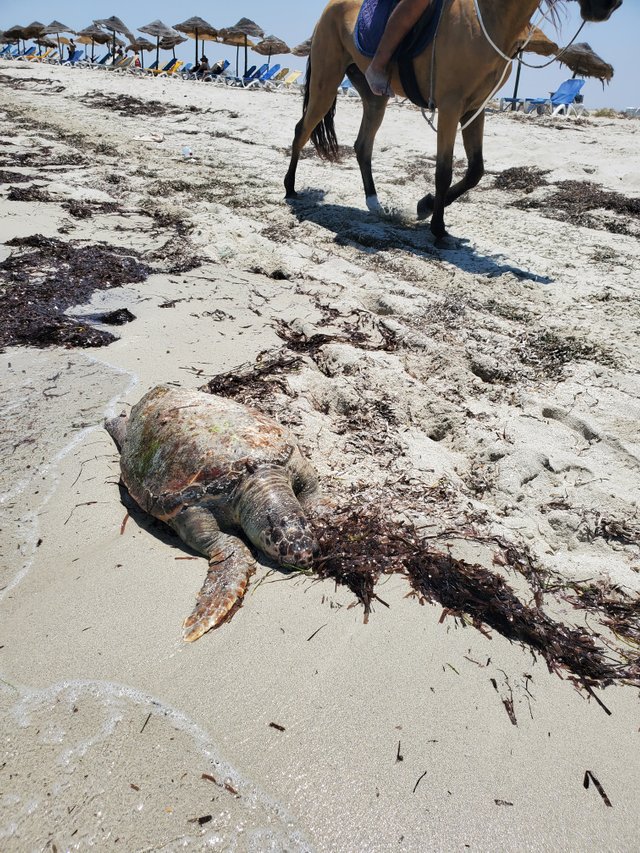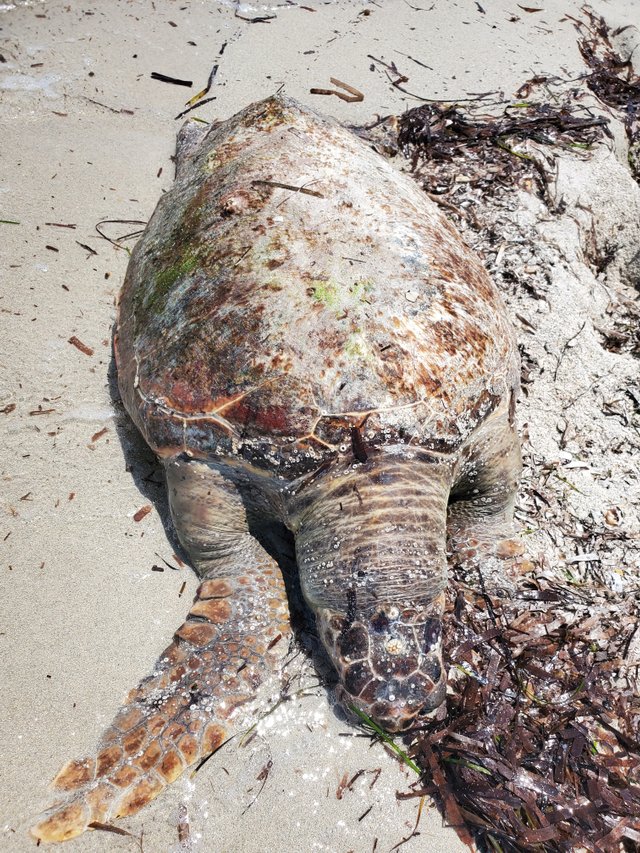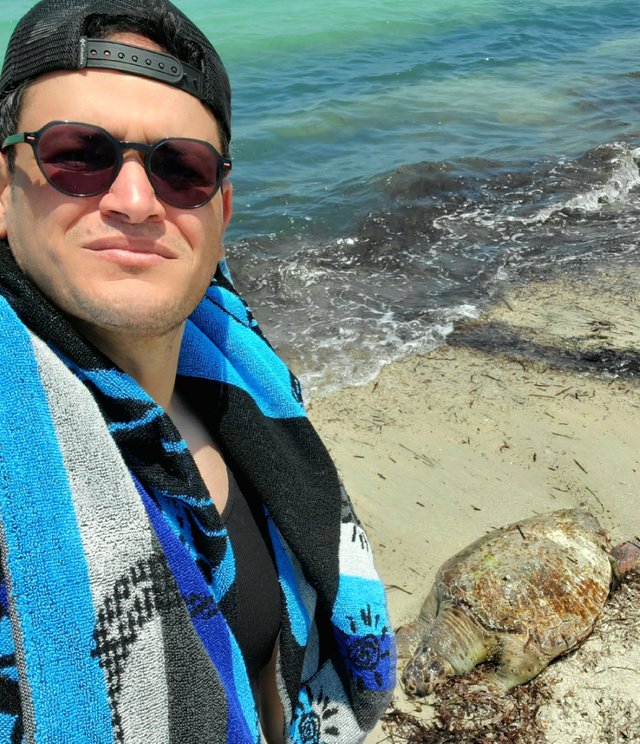Djerba, at the heart of an ecological tragedy: when jellyfish invade the sea and turtles die silently
Hello steemians!
The month of June, generally associated with the first smiles of summer, the promise of escape and the sweetness of Mediterranean swimming, takes on a completely different face on Tunisian beaches this year. While visitors flock to the coast in search of rest, an invisible but profound imbalance is manifesting itself on the surface of the water: a massive and unusual proliferation of jellyfish has been reported on several shores of the country, notably in Djerba, Mahdia, Monastir and Hammamet.
This phenomenon, which might seem trivial to some, is in reality the visible symptom of a worrying ecological disorder, the causes of which are multiple but all converge towards a human origin. It is not only an inconvenience for bathers, but also an alarm signal sent by a suffering Mediterranean Sea.
A Plastic Sea, a Toxic Sea
Among the most touching and symbolic collateral victims of this environmental decline, sea turtles occupy a central place. This week, during a simple morning walk on a peaceful beach in Djerba, I was confronted with a scene both moving and revealing: the lifeless body of a large sea turtle, stranded on the sand, covered in algae and encrusted shells, frozen forever in a tragic pose, as if silently imploring the world to pay attention to its unjust end.
 |  |
|---|
It was not a natural accident, everything in his condition suggests a slow, painful and avoidable death, most likely caused by the ingestion of plastic, this invisible scourge that floats in the sea, merging with the usual prey of turtles, notably jellyfish, a simple plastic bag, abandoned on a beach or thrown from a boat, can turn into a death trap and, if swallowed, it obstructs the animal's digestive system, causing unbearable suffering, starvation, then death, this drama is repeated every day in Tunisian waters, out of sight, in general indifference.
When turtles disappear, jellyfish proliferate
This link between plastic pollution and jellyfish overpopulation is well established by the scientific community. By reducing the populations of jellyfish's natural predators, particularly sea turtles and certain carnivorous fish, the marine ecosystem loses its balance, thus favoring the proliferation of these gelatinous organisms. Added to this is global warming, which increases water temperature, creating ideal conditions for their reproduction, as well as the eutrophication of coastal waters due to the discharge of untreated wastewater, which enriches the water with nutrients and stimulates their growth.
So what we are seeing today is not just a natural cycle, but the cumulative result of decades of environmental neglect, reckless exploitation of marine resources, and the lack of a rigorous waste management policy.
The beach, a mirror of our inconsistency
The contrast is striking, on one side, tourists enjoying the warm sand, umbrellas planted in tight rows, horses treading the dunes at a leisurely pace, and on the other, a dead turtle, a silent witness to a collapsing marine world and the photos I took, as well as the video, are not images to be viewed lightly but indeed, they call for immediate awareness.
Because the beach is not just a place of leisure, it is also the scene of a permanent dialogue between man and the sea, a place where the consequences of our most trivial actions take on an unsuspected magnitude, each forgotten plastic bottle, each discarded bag, each cigarette butt buried in the sand has a dramatic echo in the bowels of the marine ecosystem.
There is still time, but we must act quickly.
This is not about sinking into fatalism, but rather about acknowledging our collective responsibility and mobilizing at all levels. This requires a drastic reduction in the use of single-use plastic, the implementation of regular and supervised cleanup campaigns on beaches, the installation of recycling points, and, above all, increased environmental education, particularly among young people.
 |  |
|---|
Thank you very much for reading, and it is also imperative that local authorities, seaside hotels, coastal communities and environmental associations cooperate proactively to protect endangered species, monitor turtle nesting grounds, and create secure marine ecological corridors.
Best Regards,
@kouba01
.jpg)


I didn't know that, I never connected it. Thank you for the food for thought!
I am not only against the unrestrained use of plastics for these reasons. However, in some sectors they have been the optimal basis up to now. And where they are so advantageous and should definitely be used, it is actually the people, many people, who are responsible for the fact that there is no proper recycling and residue-free further processing, but disposal with the final destination being the sea.
You're absolutely right, it's not just about the matter itself, but how we as a society handle it. Plastics, in many cases, do offer unmatched utility and efficiency, particularly in sectors like healthcare, transportation, and technology. The problem lies often in our systems of consumption and waste management. If we had more robust, transparent, and globally coherent recycling infrastructures, the environmental impact could be dramatically reduced. Thank you for highlighting that, it's a reminder that the issue is as much social and systemic as it is material.
@tipu curate
;) Holisss...
--
This is a manual curation from the @tipU Curation Project.
Upvoted 👌 (Mana: 3/7) Get profit votes with @tipU :)